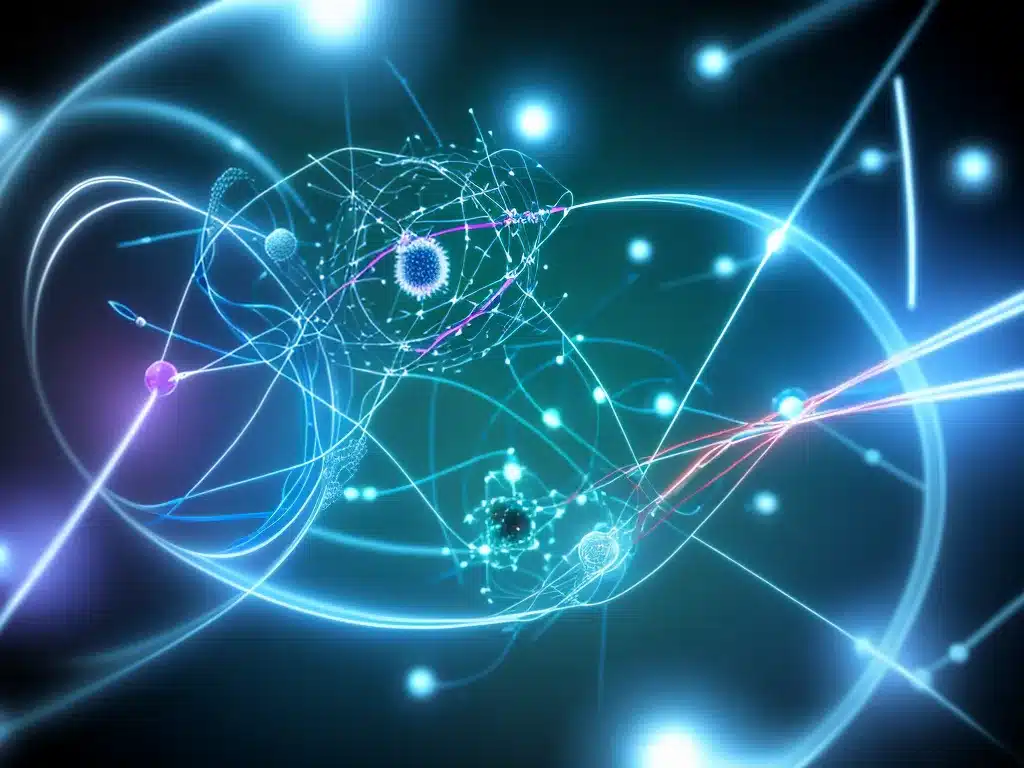
Introduction
Quantum sensing is an emerging field that leverages the strange properties of quantum physics to develop ultra-sensitive sensors. These quantum sensors have the potential to revolutionize many industries, especially healthcare and science. In this article, I will provide an in-depth look at quantum sensing and how it can impact the future.
What is Quantum Sensing?
Quantum sensing utilizes unique quantum properties like superposition and entanglement to develop sensors that are extremely precise. For example, quantum sensors can detect minute changes in electromagnetic fields, gravity, temperature, and more.
Some examples of quantum sensors include:
-
Atomic clocks – Clocks that use quantum properties of atoms like superposition to keep precise time. Atomic clocks are the most accurate clocks ever created.
-
Quantum gravimeters – Gravity sensors that utilize quantum entanglement and matter waves to detect tiny changes in gravitational fields. Far more sensitive than classical gravimeters.
-
Quantum gyroscopes – Gyroscopes that leverage quantum superposition of atoms to detect rotations with extreme accuracy.
-
Quantum magnetometers – Magnetometers that use quantum effects to achieve ultra-high sensitivity. Can detect faint magnetic signals from brain activity.
The key advantage of quantum sensors is their ability to detect infinitesimally small changes in signals thanks to strange quantum effects. This gives them sensitivities orders of magnitude better than classical sensors.
How Quantum Sensing Will Impact Healthcare
Quantum sensing has the potential to revolutionize healthcare and medical technology in many ways. Some examples:
Ultra-Precise Medical Imaging
- Quantum sensors can enable new types of medical imaging tests with unprecedented resolution and sensitivity. For example, scientists have developed quantum magnetic resonance imaging (MRI) techniques that use quantum magnetometers. These quantum MRIs can potentially image proteins and other microscopic structures in the body – something not possible with traditional MRI.
Early Disease Detection
- The extreme sensitivity of quantum sensors may allow earlier detection of diseases. Quantum magnetometers, for instance, can potentially detect minuscule magnetic signals produced by cancer cells or changes in brain activity indicative of neurodegenerative diseases like Alzheimer’s. This could enable diagnosis at much earlier stages.
Precision Medicine
- Quantum sensing could pave the way for precision medicine – healthcare tailored to an individual’s genes, environment and lifestyle. Quantum sensors can precisely analyze genetic information, biomarkers and other health data to customize diagnosis, treatments, etc.
Improved Brain-Machine Interfaces
- Quantum magnetometers and other sensors could vastly improve brain-machine interfaces. Their ability to detect faint magnetic signals from brain activity with high spatial resolution can enable smoother, more natural control of bionic limbs, exoskeletons and computer cursors via one’s thoughts.
Enhanced Drug Development
- Pharmaceutical companies can potentially use ultra-sensitive quantum sensors to improve drug development. For example, quantum molecular sensors can precisely analyze drug interactions which could help discover new medicines faster.
Applications of Quantum Sensing in Science
Quantum sensors also have game-changing implications for many scientific fields. Some examples:
High-Precision Timekeeping with Quantum Clocks
- Atomic clocks based on quantum properties of atoms already serve as the most accurate timekeeping devices. Their precision may soon improve GPS navigation, telecommunications, financial networks and other areas dependent on precise timing.
Improved Space Exploration
- Quantum gravimeters, magnetometers and other quantum sensors can enable more precise spacecraft navigation and measurement of gravitational fields around Earth and other planets. This can improve space exploration.
Early Quantum Computers
- Some quantum computing devices already use quantum sensors like superconducting magnetometers to read qubit states. As full-scale quantum computers are developed, quantum sensors will play a crucial role.
Fundamental Physics Research
- Researchers use quantum sensors for experiments that test quantum mechanics and general relativity. They also aid in the search for new subatomic particles and dark matter.
Enhanced Geophysical Monitoring
- Quantum gravimeters, magnetometers, etc. deployed on the ground and in satellites can provide finer measurements of earthquakes, volcanoes, underground oil deposits, mineral resources, etc. This will benefit geoscience research.
Challenges Facing Quantum Sensing
While promising, there are some challenges facing the adoption of quantum sensing:
-
Many quantum sensors require cryogenic cooling to near absolute zero which limits applications. New breakthroughs in chip-scale cryogenic technology may help.
-
Integration of quantum sensors into usable devices and platforms poses engineering challenges. More R&D is needed.
-
Mass manufacturing processes for quantum sensors need to mature to make the technology economically feasible.
Outlook for the Future
In summary, quantum sensing is an extremely promising field that could positively impact healthcare, science, and many other domains once the challenges above are addressed. With more research, quantum sensors may become ubiquitous in the coming decades. Their ultra-high precision and sensitivity will open up new possibilities in medical testing, disease detection, drug development, quantum computing, and fundamental physics research among other areas. The future looks bright for this revolutionary technology!












